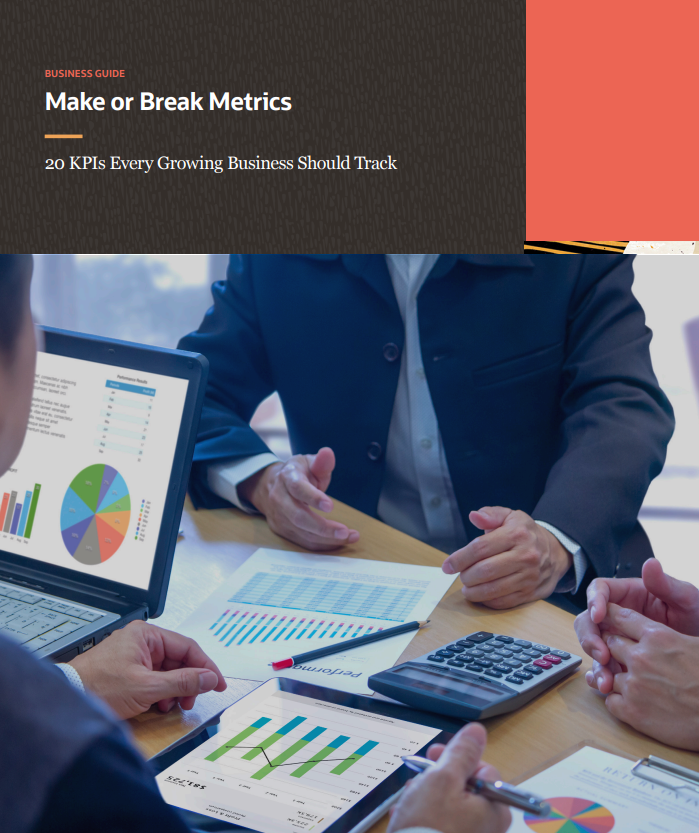- NetSuite ERP, NetSuite Financial Management, NetSuite Projects, Services - Solutions
We run our business based on a core set of KPI’s relevant to our business and our industry. The value of being able to spot deviations at a glance and be able to tweak as we go means that there are no big shocks, just some small bumps that need smoothing out every now and then. Staying on track is so much easier to achieve when there is a track to follow in the first place.
Before we get deeper into this topic, let’s first of all take a look at what KPIs actually are. KPIs, or Key Performance Indicators, are performance measurements that allow businesses to track the progress of their goals and objectives. These indicators are hugely beneficial as they are used to assess the effectiveness of strategies, operations and performance.
Understanding and tracking KPIs is key to not just meeting objectives, but business growth as a whole and the more you can learn about the success of your current operations, the better a position you will be in to drive your business forward. Making data-driven decisions without KPI data can be time-consuming and complex.
Below we have shared our thoughts on KPIs and have listed some widely used KPIs that are worth tracking, regardless of what industry you operate in.
Why should businesses track KPIs?
KPIs are more than just numbers, they’re an invaluable insight into how well your business is performing and they can provide you with an accurate snapshot into various aspects of your operations. By tracking KPIs, you can better understand your strengths and weaknesses, measure progress and make any necessary adjustments to stay competitive. Having a core set of KPIs to identify areas for improvement can help you to make better changes to day-to-day operations and ensure your business stays on track.
As well as analysing your own performance, KPIs are a great way to compare your business against your competitors and industry standards, helping you to make better and more informed strategic decisions to help you stay one step ahead.
What can KPIs be used for?
There are many different types of KPIs and they can all be useful for different reasons. Most commonly, KPIs are used to monitor the following:
- Performance: Financial & Operational
- Satisfaction: Customer & Employee
Every business has a different way of operating, so the KPIs you should track will be dependent on your overall business goals as well as the goals of different departments, teams and employees KPIs can also change over time, usually as your business objectives change and they can help you to determine whether you’re achieving your current goals.
We would suggest that it’s good practice to track both high-level KPIs that focus on overall performance and lower-level KPIs that focus on individual departments. Similarly, you should also track both leading and lagging KPIs, so you’re reflecting on past results as well as predicting future results.
How do you track KPIs?
Spreadsheets are great for so many things but tracking KPIs is not one of them. They can be time-consuming and prone to errors. It’s much easier to use tried-and-tested ERP software, especially as your business grows and you have more complex KPIs to track. Solutions such as NetSuite can provide you with all of the key data you need to calculate and track KPIs. KPI dashboards can be easily set up to present you with the information you require in real-time.
The integrated reporting and analytics capabilities within systems such as NetSuite make it easy to track KPIs and reporting will be more streamlined. You can even set up regular reports that provide you with the up-to-date data you need, so it couldn’t be easier to measure success.
Which KPIs should businesses be tracking?
While KPIs will be business or industry specific, here are a few KPIs that are relevant to most businesses.
It’s recommended that businesses track financial KPIs, such as; ‘operating profit margin’ which shows the percentage of profit you make from operations and ‘budget Vs actual’ which compares your actual spend against budgeted amounts. Some operation KPIs are also incredibly useful, such as; ‘sell-through rate’ which compares the inventory sold to the amount of inventory ordered from a manufacturer and ‘perfect order rate’ which measures how many orders are shipped without issues like damage, inaccuracies or delays.
Using NetSuite solutions to track KPIs
If you’re interested in finding out more about how NetSuite solutions can make it easier for you to track important KPIs, get in touch with our team at OSSM today. We have many years of experience helping our customers implement NetSuite software into their business operations and we provide solutions that completely transform what they do and how they do it. NetSuite’s SuiteSuccess software includes a bundle of pre-built industry-specific KPI’s built on best practices that can help set you off on the right track, quickly.
As an experienced NetSuite Partner in Ireland, we match our team and their expert skill sets to our customers’ needs and we provide tailored advice to help them overcome challenges. We’ve a huge amount of experience in the Manufacturing, Services, Distribution and Field Service sectors and we can provide you with a flexible and scalable NetSuite solution that helps you to track crucial KPIs and remain competitive in today’s fast-paced world.
To get a full list of the 20 most widely used KPIs that every growing business should track, download the NetSuite business guide below.
